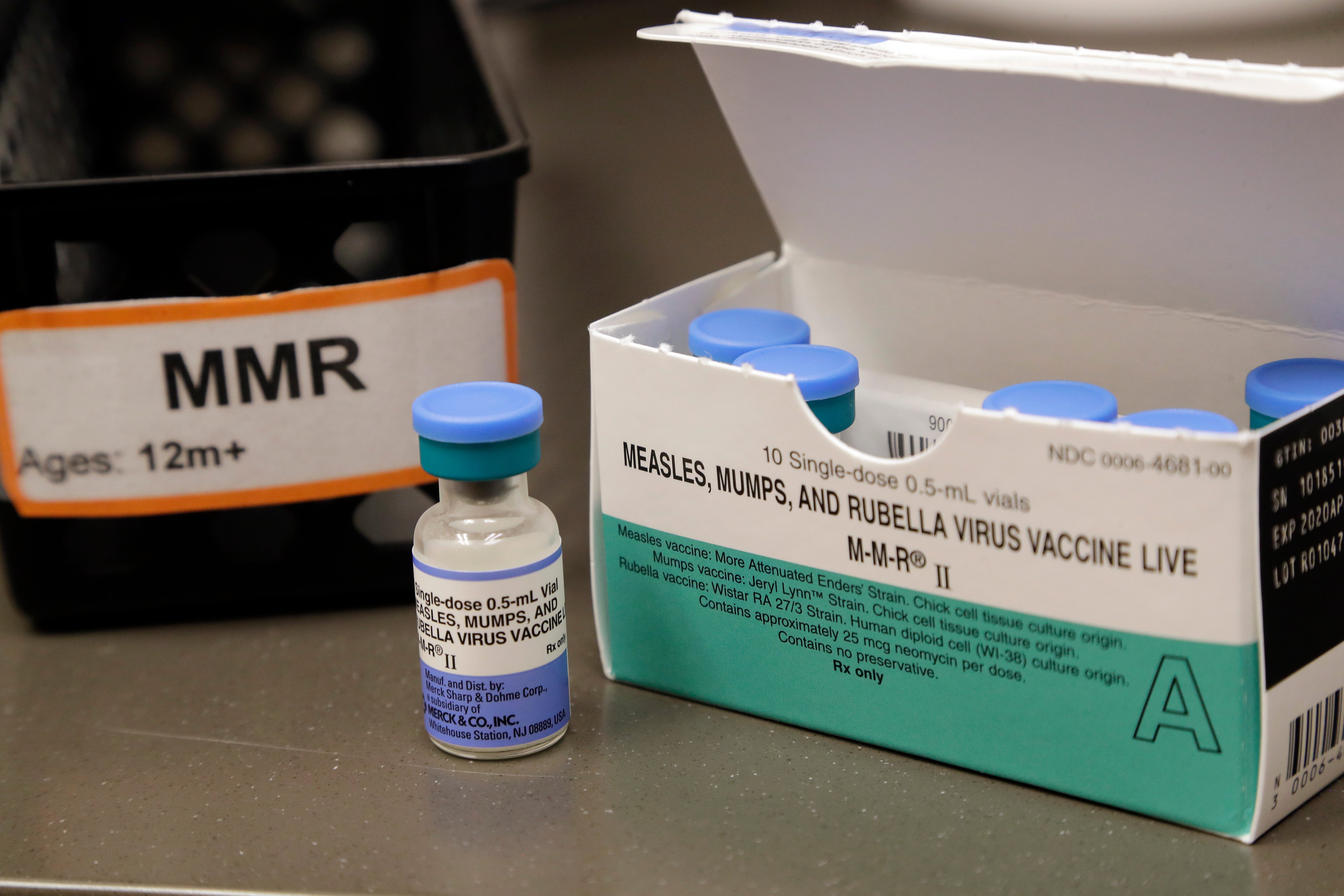Millions in the UK are being urged to get vaccinations during a surge in measles cases
U.K. health officials are urging millions of parents to book their children for missed measles, mumps and rubella shots during a sharp increase in the number of measles cases and the lowest vaccination rates in a decade

U.K. health officials on Monday urged millions of parents to book their children for missed measles, mumps and rubella shots during a sharp increase in the number of measles cases and the lowest vaccination rates in a decade.
The National Health Service is launching a publicity campaign after figures showed there were about 250 confirmed measles cases in parts of England last year. Most cases were in children under 10 years old.
The combined measles, mumps and rubella, or MMR, vaccine is offered in the U.K. in two doses to all children, first at 12 months and then again at 3 years. Vaccination rates have dropped to about 85% nationally, and far lower in parts of London, according to U.K. Health Security Agency chief executive Jenny Harries.
That is “too low to maintain safe population coverage — we want that at about 95%" as advised by the World Health Organization, she said.
Public health officials say more than 3.4 million children under 16 years old are either unprotected or not fully protected and at risk of catching the preventable disease because they received only one of two vaccine doses.
Measles was declared eliminated in the U.K. in 2017, meaning the disease was no longer native to the country.
But transmissions began again when epidemics broke out in the rest of Europe. Officials said outbreaks can take place anywhere vaccine coverage is below the 95% needed to achieve herd immunity.
WHO and the U.S. Centers for Disease Control and Prevention said in November that measles deaths globally spiked by more than 40% last year, and cases rose after vaccination levels dramatically dropped during the COVID-19 pandemic.
Measles is among the most infectious diseases known and spreads in the air when an infected person coughs or sneezes. It's most common in children under 5. Symptoms include fever, cough, runny nose and a distinctive rash.
Infection can lead to permanent physical damage such as deafness. Most deaths are due to complications like encephalitis, severe dehydration, serious breathing problems and pneumonia.
Harries said there was “clearly misinformation” about vaccines and urged people to consult trusted sources.
Officials said intense media coverage in the late 1990s about the now discredited claim linking the MMR vaccine to autism led to a drop in vaccinations and took many years to recover from.
More recently, declines in vaccination uptake were exacerbated partly by the pandemic and anti-vaccine sentiment, said Helen Bedford, a professor of children's health at University College London.
“The pandemic, with new vaccines introduced and vaccination constantly discussed, may have resulted in the public having more questions about vaccination: its safety, effectiveness and, for a disease like measles which had become rare in the U.K., its necessity,” she said. “Asking questions about vaccination is to be encouraged, but we need trained staff to do this.”
This article was amended on 28 March 2024 to carify that the figure of 3.4 million includes those who are only partially protected from measles because they have had only one vaccine dose and not two, as well as those who have received no doses. It follows amendments to an NHS statement.
Bookmark popover
Removed from bookmarks